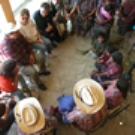This OL 344 Student Resource Page has three sections that can easily be reached by clicking on the red links just below.
Read the Class Homepage First.
1. Download Documents. This is where you can download Word, Excel and PDF documents that can save as course resources for future projects and use as templates for the assignments.
2. The Course Website. Webpage versions of the discussions and assignments for each week.
3. Read this first: The Class Home Page. This gives you an overview of the course and also sets up the course logistics.
Return to OL 344 Project Management for Climate Change Adaptation
OL 344 Project Management of Climate Adaptation Projects
OL 344 Assignment One Homework Instructions PDF 35K
Magee Example Project OL 344 Assignment 1 Word Document to 35K
OL 344 Assignment 1 Discussion PDF 35K
OL 344 Assignment Two Homework Instructions PDF 35K
Magee Example Project OL 344 Assignment 2 Word Document 35K
OL 344 Assignment 2 Discussion PDF 35K
OL 344 Assignment Three Homework Instructions PDF 35K
Magee Example Project OL 344 Assignment 3 Word Document 35K
OL 344 Assignment 3 Discussion PDF 35K
Lesson Plan CBA Participatory Mapping for Subsistence Farmers Word Document 756k
OL 344 Assignment Four Homework Instructions PDF 35K
Magee Example Project OL 344 Assignment 4 Word Document 35K
OL 344 Assignment 4 Discussion PDF 35K
OL 344 Assignment Five Homework Instructions PDF 35K
Magee Example Project OL 344 Assignment 5 Word Document 35K
OL 344 Assignment 5 Discussion PDF 35K
OL 344 Assignment Five Schedule for Community M&E Plan Excel Doc 35K
OL 344 Assignment Five Logframe with Community Based Indicators for M&E Plan Word Doc 35K
101 Hands-On Field Activities for Community Based Adaptation Projects Webpage
Specialized Links to Adaptation Documents and Sites Webpage
OL 341: 50 Programs and Activities That You Used In Your First Project Outline Word Document
OL 344 Assignment Six Homework Instructions PDF 35K
Magee Example Project OL 344 Assignment 6 Word Document 36K
OL 344 Assignment 6 Discussion PDF 35K
In this course you will continue to build a project around community need.
The class week begins on Tuesdays; assignments need to be sent to me by the Monday 7 days later. This allows students without Internet at home to access Internet at work on Mondays in order to send their assignment in.
You have signed up for a specific course within specific dates. If you are not able to complete the course within these dates, the Center allows you to take the course again for 50% of the normal course fee if you enroll in the very next scheduled course and use the very same project. Unfortunately, we can’t make exceptions.
The Student Resource Page contains:
1. Links for downloading the weeks’ documents: be sure to save the documents for future reference.
2. Links for the background Discussion on the week’s homework assignment; in this case – OL 344 Discussion 1; read this first each week
3. Links to the week’s Assignment; in this case – OL 344 Assignment One Homework
4. Links to the Magee Example Project Assignment for each week.
5. This, the ‘Class Home page with the class rules and logistics
6. A link to the Email & Homework Etiquette page in the Download Class Documents gives the rules of the game for corresponding with us and for posting assignments. Please print it out and read it first.
Each week I will ask you to download my example project to use as an assignment template. Your assignments can be uploaded to me on this training site.
Important: The Email & Homework Etiquette page in the Download Class Documents gives the rules of the game for corresponding with us and for posting assignments. Please print it out and read it first.
You are logged into the Online Learning section of our website; courses are only available to course participants such as yourselves.
This class is designed to be fun. We are each going to develop our own project – hopefully a real one. Each one of your assignments is actually a concrete element in building your project. I will comment on the development of each of your projects and have posted my own project components as examples for you to see and use for ideas.
Please use my Magee examples as templates for your project. They are formatted such that one week is the building block for the next week and therefore we need to maintain the format of the examples I provide. Download my examples and just write right over the top of what I’ve written. In this manner you will learn the system and be guided in thinking through the components of your project. This will also make it much easier for me to read through each of your assignments as each participant’s will all have the same look and feel.
Save your completed assignment using the format described in Email Etiquette. Then, upload the assignment. I will be notified of your submission.
I will review each one of your assignments and make suggestions. In this manner, I get to know you through our correspondence, and I become familiar with each of your projects. My suggestions are meant to keep your assignment ‘on track’. There are very specific steps that we work through and each project usually needs a bit of guidance in preparation for the next assignment. Do not move onto the next assignment until you have received my comments on the current assignment.
Please send photos of you, your project and the community you are working with. For some tips on taking good photos please look at the Newsletter: Capturing Compelling Photos from the Field.
1. Schedule. The work load is between 2 and 4 hours a week. You need to stay on schedule. We all need to be on the same week. If you get behind the rest of the class, you will need to take the class again in the future. We allow you to take the course again for ½ price if you join the very next class and use the same project.
2. Certificates. Course participants who successfully complete a course on time will receive a course certificate. Learn more. Your certificate will be e-mailed within 30 days of the end of your course.
Signed certificates are delivered by email in a PDF format for you to print out. We do not offer paper certificates by mail. The name on the certificate will be your first and last names as they appear on your Student Enrollment Form.
Course certificates are issued for all students from one course all at the same time—usually within one week of the end of the course. Students requesting a replacement certificate at a future date will be charged a $15.00 fee. So save and backup your certificate when you receive it.
3. Email and Homework Etiquette: the rules of the game. We have had students from 153 different countries enrolled in different courses. It is a bit complicated managing all of the incoming emails. We have developed a system that you need to incorporate in submitting homework and in corresponding with us. Please read the etiquette page now.
4. Our Online Course FAQ has answers to most other questions.
Course Syllabus
OL 344: Community Based Adaptation to Climate Change. Sustainable Implementation.
 |
Week 1: Project Management – the community perspective. Managing a project whose outcomes are projected in terms of decades needs to be carefully planned. If we play too large a role in the project process, it will make it more difficult for the community to take over when we leave. |
 |
Week 2: Engaging the community in project launch. If we’ve planned the project properly the community will think that this is their project and that we’re just there to provide the service they requested. We need to maintain that relationship in order to ensure that the community is fully engaged in the process. |
 |
Week 3: Skill Sets. Design a family of workshops on the solutions your community will use in the adaptation process. The solution activities we select need to be able to be implemented by a broad range of people types. These workshops will provide the community with all the information that they need to continue these activities for decades. |
 |
Week 4: Project Launch. Lead the participatory workshop and introduce the community-based adaptation skills designed to address the community expressed needs. Continue to encourage community feedback to develop lessons learned and to continue building community ownership of the process. |
 |
Week 5. Learning tools: Monitoring and evaluation. In the last course we conducted a baseline survey. We now need to do two things: determine what information we’re looking for in order to evaluate short-term outputs and long-term impact, and manage the process of collecting this information. |
 |
Week 6. Community Empowerment: Project hand-over. Our 3 years is up, our budget spent & it’s time to leave. Have we empowered the community to take full control at this point? Have we worked with them to identify milestones that will allow them to stay on track? Can we provide follow-up without taking the project back? Have we introduced supporting partners where they can seek future technical support? |
So what’s next? Click on the Assignment One Discussion and get started in development!
Tim Magee
Webpages with Weekly Course Discussions and Assignments
Copyright © 2008-2024, Center for Sustainable Development, Inc. All rights reserved. CSDi is a U.S. registered 501(c)(3) nonprofit organization that specializes in providing sound, evidence-based information, tools and training for climate change and sustainable development for development and nonprofit professionals worldwide. Visit our training catalogue.